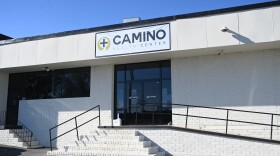-
A Charlotte nonprofit is inviting the community to celebrate Afro-Latino traditions through music, dance and history this weekend.
-
Manolo Betancur’s documentary "The ChangeBaker" premieres this Saturday at the Carolina Theatre. Betancur is the owner of Manolo’s Bakery, and he’s become a prominent voice in Charlotte’s immigrant community.
-
The Mint Museum is inviting families to celebrate Epiphany, also known as Día de los Reyes Magos, with a community event this weekend in Charlotte.
-
Latin American families in the Charlotte area are keeping centuries-old Christmas traditions alive by gathering for Las Posadas and Las Novenas, blending faith, food and family far from their home countries.
-
The Latin American Coalition hosted a community conversation Thursday night in honor of International Migrants Day.
-
It’s been a year since President Trump was reelected, promising mass deportations and tighter immigration laws. Across Charlotte, many immigrants have spent the past year living with fear and uncertainty.
-
Several thousand people will come together this weekend at Camp North End to celebrate the Mexican holiday Día de Muertos.
-
More than two dozen people of Latin American descent registered with the State Board of Elections to run for local office across North Carolina this year.
-
North Carolina’s Latino population faces a shortage of bilingual mental health professionals, and a Charlotte nonprofit is working to change that.
-
LatinxEd introduced its first-ever policy priorities list Friday at its annual Latine Education Summit in Greensboro.
Play Live Radio
Next Up:
0:00
0:00
Available On Air Stations










